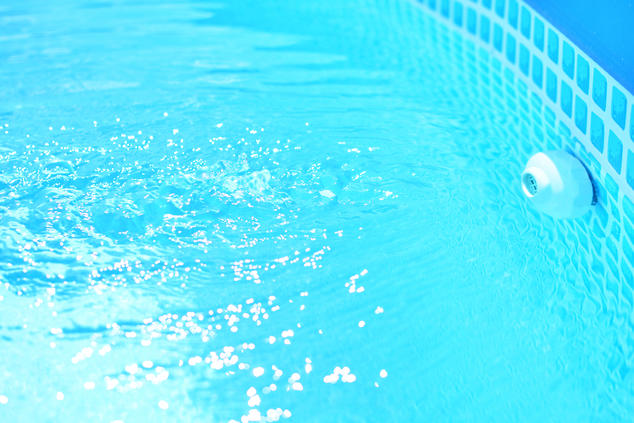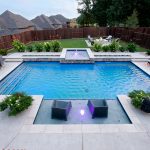Best Type of Pools for Commercial and Residential
A swimming pool is one of the facilities that can improve a building’s value and make life better and fun for those using the property. Having one, however, requires a sizable cost in construction and efforts in maintenance. You might also have to worry about safety, especially when you have children using the pool. We look at the different types of pools and which is best for residential and commercial purpose.
Residential Swimming Pool: These are pools built for households; they come in different sizes and shapes and usually come with extra security like alarms because children are likely to use it or go to it even when an adult is absent. These pools are generally shallower and smaller when compared to other types.
Commercial Swimming Pool: they are usually bigger, deeper and require more security in the form of a lifeguard. These pools are built for commercial buildings such as hotels, gymnasiums, parks, etc. In some cases, they can even be the size of standard Olympian pools. Commercial pools usually require more maintenance due to the volume and consistency of its use.
Type of Pools by Location
When classifying swimming pools by where they are built, they can be classified into two
Above-ground Pool: These are swimming pools that are at ground level. They are usually prefabricated, in circular or rectangular shapes.
In-ground Pool: The swimming pools below ground level are usually constructed on-site though in some cases, they are prefabricated. They come in diverse shapes, mostly depending on the material used.
Types of Concrete by Materials Used.
Concrete Swimming Pool: They mostly come as an in-ground pool and offer the largest pool imaginable. A concrete pool is made with steel-reinforced concrete and properly coated to remove the natural permeability of concrete. Such a pool can be finished with different materials such as stones, tiles, and others. Its biggest advantage is that it offers a variety of options when it comes to size and shapes. Due to the moldable nature of concrete, the pool can be as big as you want and in any shape. However, it also has its disadvantages, majorly two; the cost and maintenance. Concrete is the most expensive type available, and the cost increases when maintenance is added. It requires resurfacing every few years and constant maintenance to prevent algae from forming within it and balancing the pH level. Despite its disadvantages, the durability and strength it offers make it a good investment.
Fiberglass Swimming Pool: A fiberglass pool is precast in different shapes and transported to your site for installation. Installation is rapid and takes only a few days to get your pool up and running. The fiberglass is a very smooth material; thus, the pool is exceptionally slick, making it hard for algae to grow and easy on foot for swimmers. The material is also very durable and easy to repair. The material can adapt to the soil conditions, thereby preventing cracks. A fiberglass pool is also one of the best options for an above-ground pool. Its biggest advantage is the ease of maintenance and the fact that it does not require any resurfacing after some years. The pool material is compatible with salt chlorinators and a natural insulator that keeps the pool water warm. Its only disadvantage is that it comes prefabricated, so it has a limited size. The size will usually depend on the truck for transport, and the shapes are limited since the material cannot be molded just anyhow. Fiberglass pools are also expensive, but not as much as concrete.
Vinyl Swimming Pool: A vinyl pool is usually built with plastic, aluminum, steel, or metal frames, and the inside is lined with vinyl. It is the cheapest of the materials, but it is not durable. So if you are going for a quick fix, vinyl is a good choice. Its major problem is that it is expensive to maintain as you have to resurface the lining every few years. They can also deteriorate, so some liners have UV and fungus inhibitors to extend its life.
Which Pool Type is Best
When picking a pool, there are various things to look at. They include:
Size: The size of a swimming pool is one of the key things to look at. A residential swimming pool does not require much space, so a fiberglass swimming pool is a good option. But if it is a commercial pool, concrete is better because you have the freedom to enlarge it for as much as you want.
Durability: The concrete and fiberglass swimming pools are the most durable, so they are the best options for building a commercial pool. You can use vinyl for a residential pool since it is not used as frequently and consistently as a commercial pool.
Cost: If you are looking to make a major investment in your home, a fiberglass pool offers the best choice. It is not as expensive as concrete and almost as durable. A vinyl pool is cheaper, but it doesn’t last long, so if you are looking to improve your home in the meantime and sell it, vinyl can be a good choice. For commercial pools, a concrete pool is the best option. It is expensive, but it offers all the things a commercial pool needs. It can last very long, has space, and you will get the value for your money.
Maintenance: Concrete pool requires a lot of maintenance, which a homeowner may have difficulty keeping up with. So a residential pool should use fiberglass, which is easier to maintain unless the homeowner can do the hard work that will prevent disrepair in a concrete pool. For a commercial pool, fiberglass offers the best maintenance options, but a concrete pool can still be adequately maintained since it is used for commercial purposes.
Conclusion
The best type of pool is usually the one that best serves your purpose, fits within your budget, and will function efficiently on your landscape. Therefore, you will have to consider all these before making a final decision. For more pool tips visit https://www.swimmingpoolcontractorsoahu.com/ and feel free to ask them anything you might be interested in.



